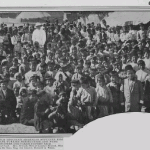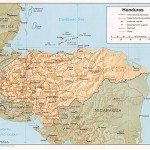Most Important United States Supreme Court Case in Refugee Law: I.N.S. v. Elias-Zacarias
 [Editor’s note: This is a sixth installment in the “what is the most important Supreme Court case in your subject area” series.]
[Editor’s note: This is a sixth installment in the “what is the most important Supreme Court case in your subject area” series.]
One of my subject areas is refugee law. There are only a handful of Supreme Court decisions in the area, but instead of making the selection easier, the paucity of case law only made it harder to choose one case as the “most” important. Because the Court has interpreted the Refugee Act relatively rarely, each of its decisions in the area has taken on even more significance than it might otherwise have had. For instance, it is difficult to overstate the impact of the decision in Sale v. Haitian Centers Council, Inc., the repercussions of which still plague the international refugee law system, because the Court said that the United States could stop and return Haitians at sea, without verifying whether they were refugees, seemingly in direct conflict with the highest principle of international refugee law, “non-refoulement,” or, “non-returning,” of refugees. And what about the pair of cases, INS v. Stevic and INS v. Cardoza-Fonseca, which, prior to Sale, held that the Refugee Act created two distinct categories of refugees, those whom the U.S. had promised not to return to their persecutors and those whom the U.S. could, in its discretion, allow to stay in the U.S. (a distinction generally not recognized by any of the other nations who signed the refugee treaties)?
In the end, of course, it’s impossible to identify a single case as most important. But I decided to write about INS v. Elias-Zacarias, 502 U.S. 478 (1992), because its holding, that an asylum applicant must provide direct or circumstantial evidence establishing the alleged persecutor’s motivations, has had such dramatic, and (I hope) unintentional impacts on refugee law and practice in the United States. One could even argue that the extreme disparities in judges’ decisions in similar asylum cases stem, at least in part, from the near-impossibility of reliably applying Elias-Zacarias‘s demand for evidence of the persecutor’s motive, in the context of the record that can reasonably be developed in the vast majority of asylum cases.


